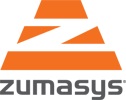Clarke Transport Migrates to jBASE
At the heart of Clarke Transport's UK business is a powerful transportation management system written in Pick basic. Leveraging the power of the MultiValue data model, the company based in Birmingham, has continually modified and enhanced its application over the course of 30 years. The result is a feature rich application with a modern interface. However, after hiring a series of new developers, Clarke Transport decided to embrace jBASE for its native Windows capabilities, which makes it easier for programmers without MultiValue knowledge to master.
Tell me about Clarke Transport. What is it that you do?
Jason: Clarke Transport is regional provider of delivery, warehousing, and transportation solutions. We specialize in transporting hazardous freight, such as chemicals and paint. We're a family-run organization, founded in 1933 as the first direct road service between the industrial Midlands and Scotland. We employ over 500 people across seven sites in the UK.
How do you use jBASE today?
Gareth: jBASE is absolutely at the core of everything we do at Clarke. Our transport management system pretty much runs our entire business. All our jobs, consignments, routing, scanning, and invoicing is handled through that system, which now runs on jBASE. We also have external websites that connect to jBASE so our customers can enter jobs themselves. Without our transport management system, we wouldn't have a business.
Why did you choose to move to jBASE?
Jason: Clarke had been running our transport management system on Pick for 30 years—way before our time. But we were looking for a solution that was on the leading edge, something that would allow us to be more forward-looking with our development.
We were also having lots of stability issues with our Pick system. We were experiencing crashes every other month, which for a system as critical as ours, was not acceptable. Our trucks are operating 24-hours a day, so even a minor disruption to our systems can be a significant disruption to the business. Customers aren't going to want to use your service if they can't rely on you. You can't run a business like that, especially when you're trying to grow in the industry.
What has your experience been using or since moving to jBASE?
Gareth: The biggest benefits with Zumasys and jBASE are stability and flexibility. The MultiValue community is very small, particularly in the UK. One of the key advantages of Zumasys is that we can leverage its large support team without having to go through a middleman to diagnose issues. Zumasys provides the 24-hour, globally available coverage we need to compete in our industry. With Zumasys, we can phone in and speak directly to someone who can help us solve our problem immediately.
Jason: We've completely gotten rid of the stability and crashing problems we had before. With jBASE we also get the full benefits of virtualization, including real disaster recovery. Before, we were backing up from a physical AIX server to tape at a remote location. Our jBASE solution now runs on Windows Server using Hyper-V virtualization. jBASE automatically replicates data to our remote site, so in the event of a failure, we can just spin up the virtual server on the other side and away we go.
How does jBASE RESTful services help you recruit development talent?
Gareth: Our Pick developers were starting to reach retirement age, and we were having trouble finding new programmers. With jBASE, we can attract the next generation of developers because they can come in and use jBASE natively using RESTful services. We can hire a web developer who doesn't know anything about MultiValue, and as long as we can give them the interfaces to talk to, they can create a website that talks to jBASE. jBASE gives us the ability to talk to modern technology using RESTful services and various other connecting modules within jBASE. This dramatically increases our throughput and speeds up development time. Now we can do a lot more web integration that, while possible to do with our older version of Pick, was a lot slower and more expensive.
For example, our order-booking website that talks to our MultiValue database was previously very difficult to develop. Now with jBASE and RESTful API services, web developers can easily make changes and enhancements. They can spend less time trying to navigate the system and more time creating fast, responsive websites, which is what our customers want. Development goes a lot faster and is a whole lot more affordable.


